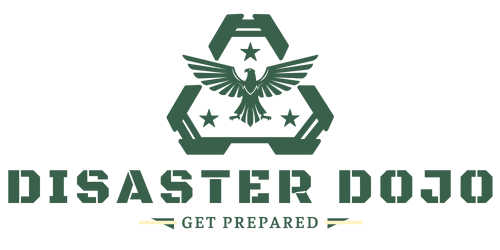In today’s interconnected world, it’s easy to rely on others for our everyday needs and comforts. However, there is a growing movement towards practical self-reliance, a way to take control of your own life and reduce your dependency on others. By developing essential skills, building resilience, and embracing a do-it-yourself mentality, you can not only gain a sense of empowerment but also ensure your well-being even in uncertain times. Join the journey towards practical self-reliance and discover the freedom that comes with taking charge of your own destiny.

Financial Independence
Creating a Budget
When it comes to achieving financial independence, one of the first steps you can take is creating a budget. By carefully tracking your income and expenses, you’ll have a clear understanding of where your money is going and how you can make adjustments to save more. Start by listing all your sources of income and then list all your expenses, including bills, groceries, and any discretionary spending. By setting aside a portion of your income for savings and investments, you’ll be on your way to building a solid financial foundation.
Saving Money
Saving money is an essential aspect of achieving financial independence. It’s a good idea to set specific savings goals for yourself, whether it’s for emergencies, a down payment on a house, or retirement. One strategy you can use is the 50/30/20 rule. This rule suggests allocating 50% of your income for necessities, 30% for wants, and 20% for savings. Additionally, you can save money by cutting back on unnecessary expenses, such as eating out less, cancelling unused subscriptions, and reducing energy consumption at home.
Investing for the Future
While saving money is important, investing it wisely can accelerate your journey towards financial independence. Consider exploring different investment options, such as stocks, bonds, real estate, or mutual funds. It’s important to do thorough research or consult with a financial advisor to understand the risks and potential returns of each investment. By diversifying your investments and staying consistent with a long-term approach, you can potentially grow your wealth and secure a financially independent future.
Developing Practical Skills
Cooking and Meal Planning
Learning how to cook and plan meals not only saves you money but also promotes a healthier lifestyle. By preparing your meals at home, you have control over the ingredients you use, ensuring that you consume nutritious food. Start by learning basic cooking techniques and gradually expand your culinary repertoire. Meal planning can also help you save time and reduce food waste by organizing your meals for the week and making a shopping list accordingly.
Basic Home Repairs
Being able to handle basic home repairs can save you money on hiring professionals and increase your self-reliance. Learn how to fix common household issues like leaky faucets, clogged drains, and minor electrical problems. Many resources, such as online tutorials and DIY books, can guide you through these repairs step by step. By acquiring these skills, you’ll be able to maintain your home efficiently and tackle small issues before they become larger and costlier problems.
Gardening and Food Preservation
Growing your own food is not only rewarding but also reduces your reliance on store-bought produce. Start small by growing herbs or vegetables in containers or dedicate a small area of your yard to a garden. The satisfaction of harvesting and eating your own homegrown vegetables is immeasurable. Additionally, learning food preservation techniques like canning, freezing, and drying can help you save money by preserving the abundance of your garden or taking advantage of seasonal produce sales.

Building a Supportive Community
Networking and Building Relationships
Building a supportive community can be crucial in your journey towards self-reliance. Networking with like-minded individuals can provide opportunities for knowledge exchange, collaboration, and support. Attend community events, join professional groups, or participate in workshops to meet people with similar interests. By fostering meaningful relationships, you can establish a network of individuals who can provide guidance, advice, or even potential business opportunities.
Bartering and Trading
Engaging in bartering and trading can be an effective way to acquire goods or services without relying on monetary transactions. Exchange skills or items you have with others who can offer something of value to you in return. For example, if you are skilled in carpentry and need help with plumbing, you can trade your services with a plumber who needs carpentry work done. By utilizing this resourceful approach, you can both save money and build a sense of community by supporting and relying on each other’s skills and resources.
Joining Community Organizations
Joining community organizations allows you to actively participate in activities that align with your interests while building connections with individuals who share common goals. Whether it’s a local environmental group, a neighborhood committee, or a charity organization, being part of a community organization allows you to contribute your skills and expertise towards a common cause. These organizations often provide a platform for learning, networking, and making a positive impact in your community.
Maximizing Personal Health
Exercise and Physical Fitness
Taking care of your physical health is essential for overall well-being and self-reliance. Regular exercise helps to improve your strength, flexibility, and cardiovascular health. Find activities you enjoy, whether it’s jogging, cycling, swimming, or practicing yoga. Incorporating exercise into your daily routine not only benefits your physical health but also boosts your mental well-being, reduces stress, and increases your energy levels.
Healthy Eating Habits
Maintaining a balanced and nutritious diet is crucial for a healthy and self-reliant lifestyle. Focus on consuming whole, unprocessed foods like fruits, vegetables, lean proteins, and whole grains. Avoid excessive sugar, unhealthy fats, and processed foods. Learn to read food labels, plan your meals in advance, and cook your meals at home using fresh ingredients. By prioritizing your nutrition, you’ll have the energy and vitality to take on daily challenges and reduce your dependency on fast food or unhealthy convenience options.
Basic First Aid Skills
Having basic first aid skills can be invaluable in emergency situations. Take a first aid course to learn how to handle common injuries, perform CPR, and respond to medical emergencies. By gaining these skills, you’ll be better equipped to handle minor injuries or provide initial assistance until professional help arrives. Understanding basic first aid can provide a sense of security and self-confidence knowing that you can take care of yourself and others when needed.

Emergency Preparedness
Creating an Emergency Kit
Being prepared for unexpected situations is essential for self-reliance. Create an emergency kit that includes essential items such as non-perishable food, water, medications, flashlight, batteries, a first aid kit, and any necessary personal documents. Consider the specific needs of your family, including pets, and ensure your emergency kit is readily accessible in case of evacuation or natural disasters. Regularly check and update your emergency kit to ensure everything is in working order and supplies are not expired.
Learning Basic Self-Defense
Learning basic self-defense techniques can contribute to your overall safety and self-assurance. Enroll in self-defense classes or workshops that teach you how to protect yourself in various situations. These skills can empower you to stay safe and handle potentially dangerous encounters with confidence. Remember that self-defense is not about seeking conflict, but rather about developing the skills to protect yourself and escape dangerous situations whenever possible.
Understanding Natural Disasters
Educating yourself about the natural disasters prevalent in your area is critical for self-reliance. Research and understand potential risks such as earthquakes, hurricanes, floods, or wildfires. Familiarize yourself with evacuation routes, local emergency protocols, and the necessary steps to safeguard your home. By being aware of the potential threats and taking proactive measures to prepare for them, you can increase your resilience and ability to navigate these situations.
Relying on Technology
Learning Basic Computer Skills
In today’s digital age, basic computer skills are essential for self-reliance. Familiarize yourself with essential computer programs and tools, such as word processing, spreadsheets, and email. Understand how to navigate the internet safely, use search engines effectively, and protect your personal information online. By having these skills, you can access a world of information, communicate efficiently, and complete various tasks independently.
Using Online Resources for Information
The internet provides a wealth of resources that can help you become self-reliant in various aspects of life. From DIY tutorials and educational articles to forums and online communities, you can find information and learn new skills without relying on others. Use online resources to expand your knowledge, seek advice, and gain a deeper understanding of the topics you are interested in. However, remember to verify the credibility of the sources to ensure the information you find is accurate and reliable.
Utilizing Mobile Applications
Mobile applications can be valuable tools for self-reliance. From budgeting apps to fitness trackers and language learning apps, there is an app for almost everything. Explore the different options available and find applications that align with your goals and interests. These apps can assist you in managing your finances, organizing your schedule, tracking your health, and learning new skills. Utilizing these resources can streamline your daily tasks, enhance your productivity, and help you become more self-reliant.

Reducing Environmental Impact
Energy Efficiency at Home
Reducing your energy consumption not only benefits the environment but also contributes to financial savings. Implement energy-efficient practices at home, such as using LED light bulbs, programming your thermostat, and insulating your home properly. Turn off lights and appliances when not in use and consider investing in energy-efficient appliances. By adopting these simple habits, you can reduce your carbon footprint and lower your utility bills.
Implementing Waste Reduction Strategies
Minimizing waste is an important step towards self-reliance and environmental sustainability. Practice the 3 R’s: reduce, reuse, and recycle. Be mindful of your consumption, purchase goods with minimal packaging, and prioritize reusable items over single-use products. Compost organic waste and recycle paper, plastic, glass, and metal. By making conscious choices and adopting waste reduction strategies, you can help preserve natural resources and promote a healthier planet.
Utilizing Alternative Transportation
Reducing your reliance on cars and embracing alternative modes of transportation can have a significant impact on the environment and your personal well-being. Consider walking, biking, or using public transportation whenever feasible. Carpooling or ridesharing can also reduce traffic congestion and lower your transportation costs. By choosing greener transportation options, you not only contribute to cleaner air and reduced carbon emissions but also improve your physical fitness and overall health.
Learning Self-Reliance in Education
Independent Study and Research
Harnessing the power of independent study and research can expand your knowledge and develop your skills in various areas. Take the initiative to learn about topics you are passionate about. Utilize books, online courses, and educational resources to deepen your understanding. Independent study allows you to tailor your learning experience to your specific interests and work at your own pace, empowering you to become self-reliant in acquiring knowledge.
Developing Critical Thinking Skills
Developing critical thinking skills is essential for self-reliance in education and all aspects of life. Enhance your ability to analyze information, evaluate evidence, and form logical conclusions. Question assumptions and seek alternative perspectives to broaden your understanding. By honing your critical thinking skills, you become an active learner who can independently assess and determine the credibility and validity of knowledge.
Acquiring Practical Job Skills
In today’s competitive job market, acquiring practical skills can increase your self-reliance and employability. Identify the skills that are in demand in your desired field and take proactive steps to acquire them. This can involve attending workshops, taking online courses, or seeking mentorship from professionals in your industry. By continually enhancing your skill set, you can thrive in your career and adapt to evolving industry trends.

Practicing Self-Care
Mental Health and Emotional Well-being
Taking care of your mental health is as important as caring for your physical well-being. Find activities that promote relaxation, stress relief, and mental clarity. This can include practicing mindfulness and meditation, engaging in hobbies you enjoy, or seeking therapy or counseling when needed. Prioritizing your mental health allows you to maintain emotional well-being, resilience, and self-reliance when facing life’s challenges.
Time Management and Prioritization
Mastering time management and prioritization skills is crucial in leading a self-reliant life. Learn how to effectively plan and allocate your time, set realistic goals, and prioritize tasks based on their importance and urgency. By being organized and disciplined with your time, you can increase productivity, achieve your objectives, and reduce stress caused by procrastination or being overwhelmed.
Setting Personal Boundaries
Establishing and maintaining healthy personal boundaries is essential for self-reliance and well-being. Learn to identify your limits and communicate them effectively to others. By setting boundaries, you protect your physical and emotional energy, maintain your autonomy, and prevent being taken advantage of. Respectfully assert your needs and values, and surround yourself with individuals who also respect your boundaries.
Creating Multiple Streams of Income
Freelancing and Side Hustles
Creating alternative streams of income through freelancing or side hustles can provide financial security and increase self-reliance. Identify your marketable skills and explore opportunities to offer your services on a freelance basis. You can also pursue side projects or businesses that align with your interests or hobbies. By diversifying your income sources, you lessen your reliance on a single job or employer, giving you more control over your financial future.
Creating Passive Income Sources
Passive income sources are an effective way to increase self-reliance and generate money in a more automated manner. Consider investing in rental properties, dividend-paying stocks, or creating digital products like e-books or online courses. Passive income streams can provide financial stability and flexibility, allowing you to focus on other activities or interests while still earning money.
Exploring Entrepreneurship Opportunities
Embracing entrepreneurship can be a pathway towards self-reliance and financial independence. Identify business opportunities that align with your skills and passions and explore the potential for starting your own venture. Entrepreneurship allows you to have control over your destiny, make independent decisions, and create a business model that suits your goals and values. While entrepreneurship comes with its challenges, it also offers the potential for personal and financial freedom.
In conclusion, practical self-reliance is about reducing your dependency on others and taking charge of various aspects of your life. By creating a budget, developing practical skills, building a supportive community, maximizing personal health, preparing for emergencies, utilizing technology wisely, reducing environmental impact, cultivating self-reliance in education, practicing self-care, and creating multiple streams of income, you can enhance your independence and pave the way towards a fulfilling and self-reliant life. Remember, self-reliance is a journey, and with determination and perseverance, you can continually grow and thrive in all areas of your life.


